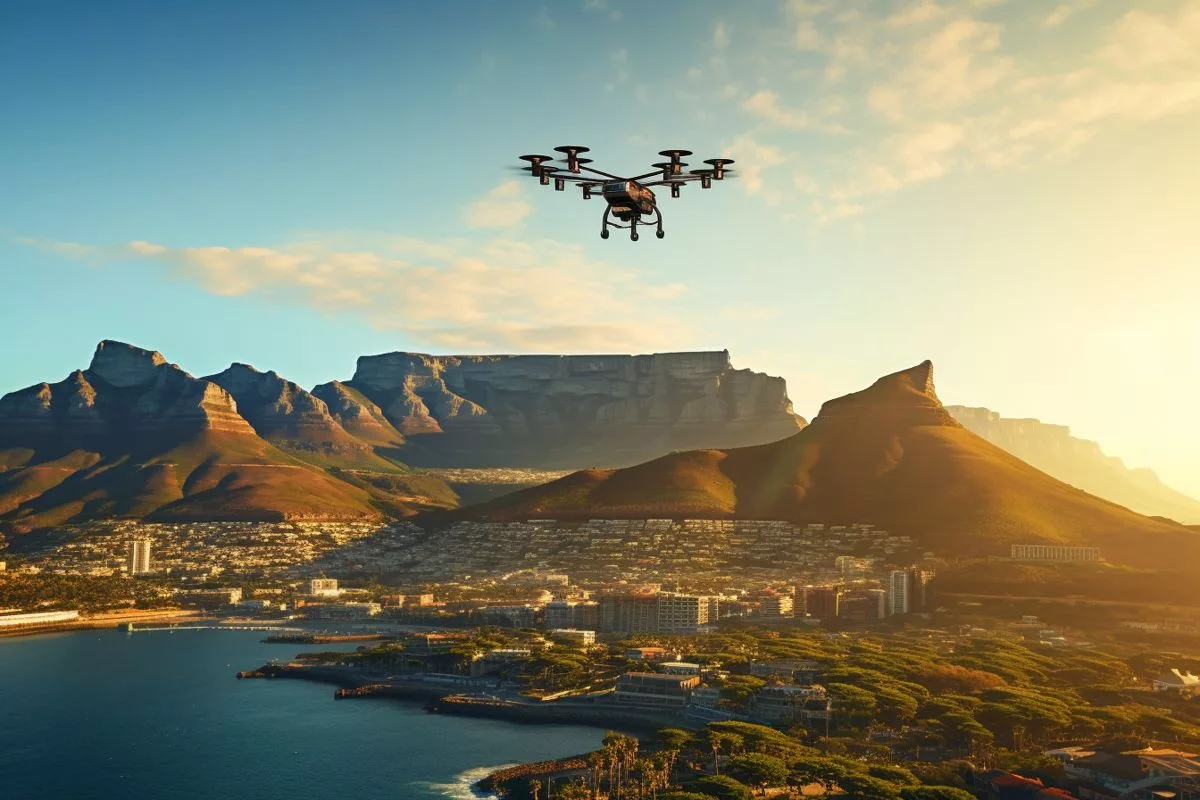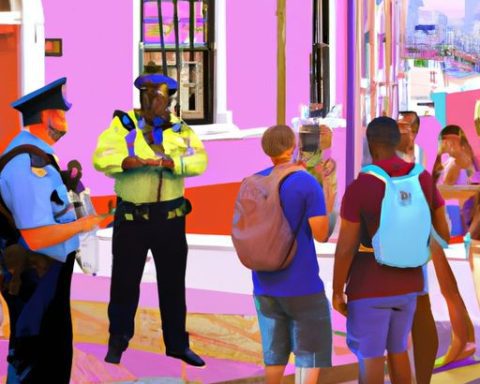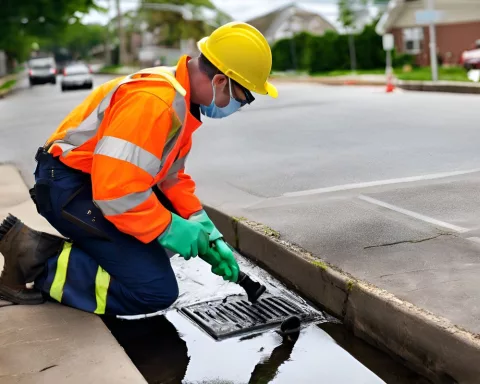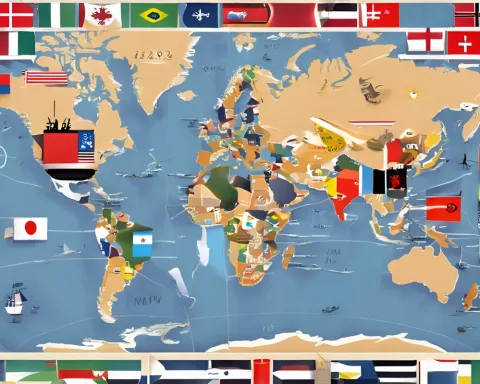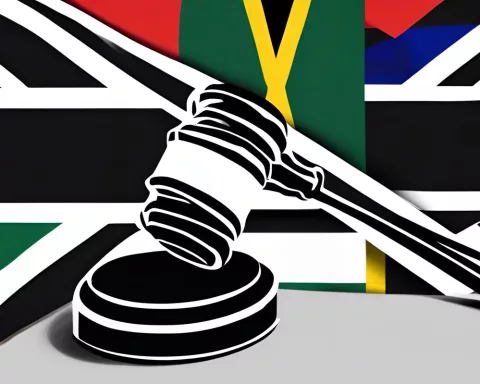Cape Town is taking action to prevent GPS technology from directing tourists into dangerous areas and enhancing physical security measures to protect visitors. The city is deploying the largest tourism unit in its history and using technology like drones, CCTV, and vehicle dashcams to augment its arsenal against crime. A dedicated team of 80 personnel will be assigned to ensure security along popular tourist routes, and the city is committed to maintaining its international reputation as a top-tier tourist destination.
How is Cape Town enhancing tourist safety amidst technological hazards?
Cape Town is addressing the issue of GPS technology directing tourists into hazardous areas by implementing measures to prevent GPS-guided mishaps. The city is also stepping up its safety and security initiatives by deploying the largest tourism unit in the city’s history and incorporating technology such as drone surveillance, vehicle dashcams, and CCTV to augment its arsenal in its battle against crime. A dedicated team of 80 personnel will be assigned to ensure security along popular tourist routes.
The Paradox of Cape Town
Nestled beneath the magnificent Table Mountain, Cape Town presents a juxtaposition of striking beauty and potential danger. The South African city, adored by travelers for its breathtaking landscapes and rich cultural heritage, recently encountered an unpredicted risk: GPS technology inadvertently directing tourists into hazardous areas.
This problem was spotlighted after a distressing event where a foreign visitor was shot in Nyanga township. The incident served as a stark wake-up call to the enduring inequality in South Africa, a bitter legacy of the apartheid era. Suddenly, commonly relied upon tools like Google Maps came under fire for their role in guiding tourists into treacherous territories.
Cape Town’s Mayor, Geordin Hill-Lewis, recognized the city’s struggle with these unfortunate incidents, candidly stating that they “cast a shadow over our international reputation.” However, he was swift to stress that such events are unusual, dramatically contrasting with the welcoming ambiance that Cape Town typically exudes.
Addressing the GPS Conundrum and Enhancing Physical Security
In response to this concern, Hill-Lewis opened discussions with Google, with the goal of implementing measures to prevent GPS-guided mishaps. Attention is being centered not merely on reactive responses but on proactive strategies that can help tourist establishments in guiding their guests to stay alert during their visit.
Cape Town’s solution extends beyond digital interventions. As the festive December season approaches, the city is stepping up its safety and security initiatives. Plans are in place to deploy the largest tourism unit in the city’s history, especially in key areas such as the Table Mountain National Park and the Central Business District.
This security force will be a collaborative effort, composed of members from the South African Police Services, SANParks, CIDs, and neighborhood-watch partners. Hill-Lewis reiterated the city’s dedication to public safety, announcing the deployment of over 4,000 uniformed personnel working in shifts throughout the holiday season.
Incorporating Technology in Safety Efforts
Technology is expected to play a vital role in these initiatives. Drone surveillance, vehicle dashcams, automatic number plate recognition, and CCTV are set to augment the city’s arsenal in its battle against crime. Approximately 3,000 public and private cameras, supplemented by drones, will maintain a watchful eye over the city’s popular beachfront and mountain areas.
There will be concentrated effort towards ensuring safety on frequented tourist routes like Signal Hill, Lion’s Head, Devil’s Peak, Table Mountain trails, the Bo-Kaap, Waterfront, and CBD. A dedicated team of 80 personnel will be assigned to ensure security along these routes.
While the city grapples with the GPS predicament, it is employing practical measures to ensure visible and effective law enforcement during the holiday period. While road safety apps like Waze and Google Maps hold their attraction, alternatives such as RedZone Map, created to warn users of potential danger zones in unfamiliar cities, offer a safer choice.
A Determined Effort Towards Tourist Safety
In sum, the city of Cape Town is tackling these challenges decisively, displaying its unwavering commitment to safety. The goal is that visitors will continue to be attracted to the city’s array of charms, without being deterred by these unfortunate events. The city appears to be resolved to not let a technological hiccup overshadow its international reputation as a top-tier tourist destination.
1. What is the GPS conundrum that Cape Town is addressing?
Cape Town is addressing the issue of GPS technology directing tourists into hazardous areas, which has become a significant concern after a foreign visitor was shot in Nyanga township.
2. How is Cape Town enhancing its safety and security measures for tourists?
Cape Town is deploying the largest tourism unit in the city’s history, composed of over 80 personnel assigned to ensure security along popular tourist routes. The city is also using technology such as drone surveillance, vehicle dashcams, and CCTV to augment their arsenal against crime.
3. What role is technology playing in Cape Town’s safety efforts?
Technology such as drone surveillance, vehicle dashcams, automatic number plate recognition, and CCTV are set to augment the city’s arsenal in its battle against crime. Approximately 3,000 public and private cameras, supplemented by drones, will maintain a watchful eye over the city’s popular beachfront and mountain areas.
4. Which areas are being focused on for safety measures in Cape Town?
The safety force will be concentrating on ensuring safety on frequented tourist routes like Signal Hill, Lion’s Head, Devil’s Peak, Table Mountain trails, the Bo-Kaap, Waterfront, and CBD.
5. How many uniformed personnel will be deployed in Cape Town during the holiday season?
Over 4,000 uniformed personnel will be deployed in Cape Town during the holiday season, working in shifts to enhance safety and security for tourists.
6. How is Cape Town ensuring that tourists are guided towards safer areas during their visit?
The city is not only implementing measures to prevent GPS-guided mishaps but is also centering attention on proactive strategies that can help tourist establishments guide their guests to stay alert during their visit. Alternatives such as RedZone Map, created to warn users of potential danger zones in unfamiliar cities, offer a safer choice.

